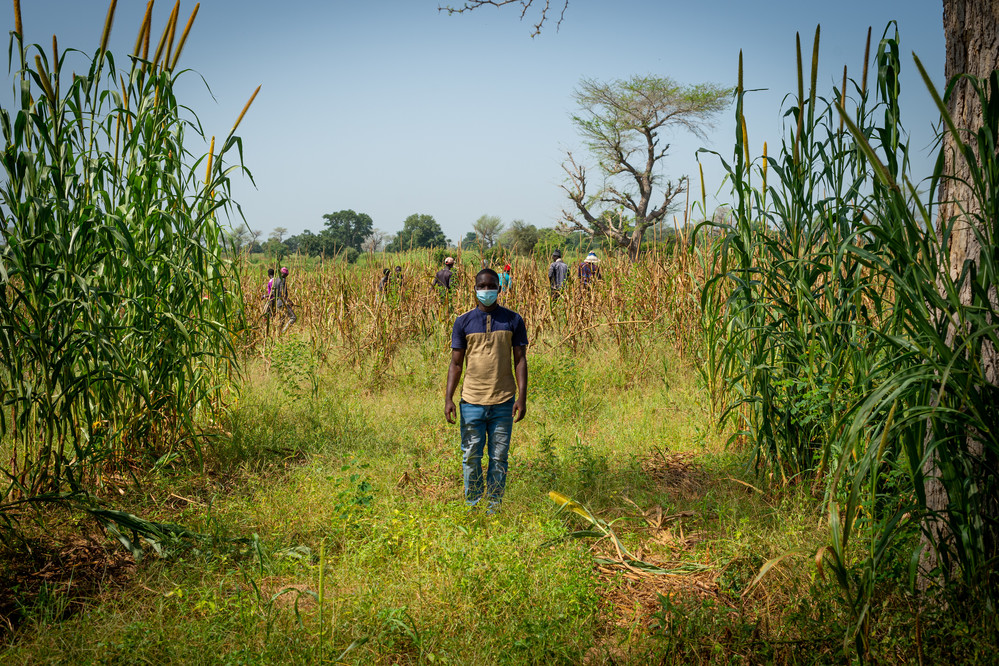-
Grow Asia has partnered with NTU Singapore to launch a new certified training course on responsible investing.
-
With US$205 billion in untapped investment opportunities across Southeast Asia[1], the ASEAN Academy on Responsible Investing equips professionals with the skills to execute sustainable investments in the food, agricultural, and forestry sectors.
-
The programme is hosted by the Singapore Agri-Food Innovation Lab (SAIL) – a collaboration between NTU Singapore and Enterprise Singapore.
-
Watch the program trailer here.

The four-month pilot program equips professionals across the food, agriculture, and forestry sectors with the skills to design and implement more responsible and sustainable investments.
The course is delivered by Grow Asia and hosted by the Nanyang Business School at Nanyang Technological University, Singapore (NTU Singapore), and the Singapore Agri-Food Innovation Lab (SAIL) – a collaboration between NTU and Enterprise Singapore to drive innovation and collaboration among companies in the agri-food sector and accelerate developments from the lab to market.
The programme consists of in-person workshops and e-learning modules specifically tailored for the ASEAN context. It’s an ideal entry point for professionals working in both private and public sectors, as well as start-ups, non-profits, and civil society organizations in the region.
A study by the global consulting firm, Bain and Co., highlights that there is an untapped US$205 billion in annual investment opportunities across Southeast Asia’s food, agriculture, and forestry sector. To cater to this growing demand, the ASEAN Academy on Responsible Investing provides practitioners with the skills they need to make investments that generate not only financial returns, but also environmental, social, and governance outcomes.
“Beverley Postma, Executive Director, Grow Asia, said, “We are honoured to partner with NTU on this ground-breaking Academy. Grow Asia’s mission is to break down silos that exist between the public and private sectors by identifying solutions that are urgently required to transform food systems and generate positive social, environmental, and financial returns. Education is a vital tool to lead such large-scale change. By addressing the skills gaps that exist in the ASEAN investment landscape, this exciting new programme equips professionals in the food and agricultural sector with the knowledge they need to accelerate investment for food systems transformation.”
The program covers in-depth knowledge of responsible practices in the food, agriculture, and forestry sectors and is built upon the 10 ASEAN Guidelines on Promoting Responsible Investment in Food, Agriculture and Forestry. Participants are supported by expert trainers and can apply their learning to real-world projects. The training also offers region-wide and in-person networking opportunities for like-minded professionals, allowing them to collectively brainstorm solutions for investment challenges.
“Professor Boh Wai Fong, Deputy Dean, NBS and co-Director, SAIL, said, “NTU’s innovation in the agri-food tech space has led to the setting up of the Singapore Agri-Food Innovation Lab (SAIL) in 2021. Riding on this momentum, the new training programme under Grow Asia’ new ASEAN Academy will be supported by NTU’s experts to provide a high quality and effective platform for professionals to learn. Through the programme, we hope the participants can go on to pursue successful sustainable investments in regional agrifood, facilitating economic growth for the sector. This is in line with the NTU Sustainability Manifesto, which aims to propel the University’s wide-ranging efforts in sustainability over the next 15 years and solidify its position as a leader in sustainability.”
The initiative is supported by the Government of Japan through the Japan-ASEAN Integration Fund (JAIF) and the Swiss Agency for Development and Cooperation (SDC).
This article was originally published by Grow Asia

